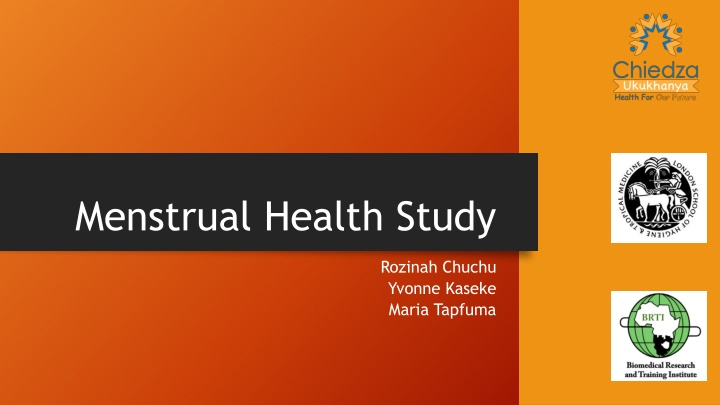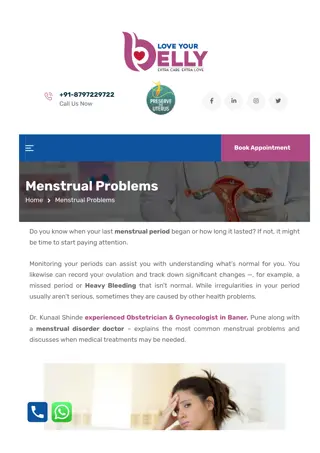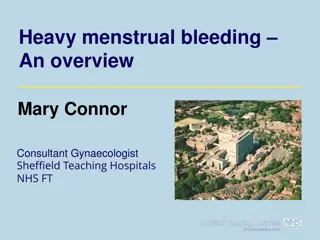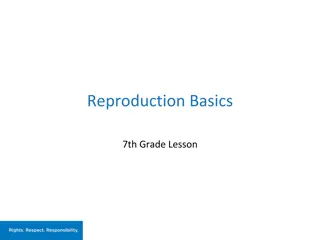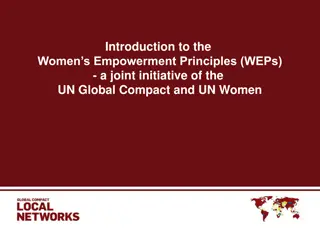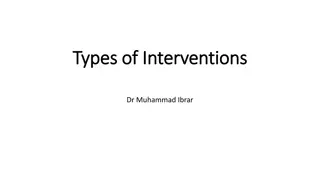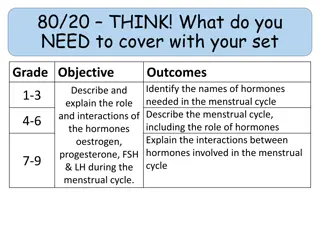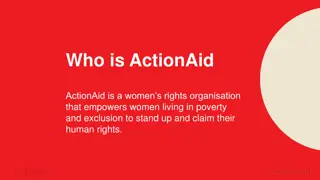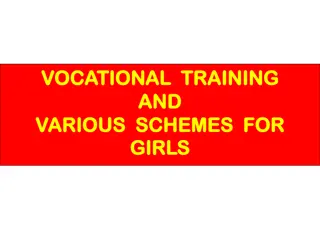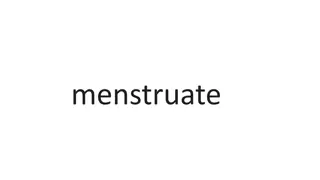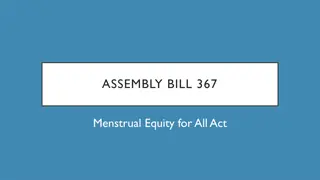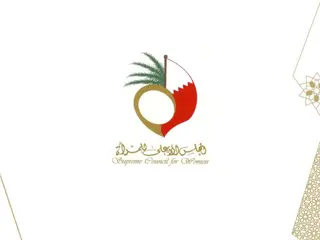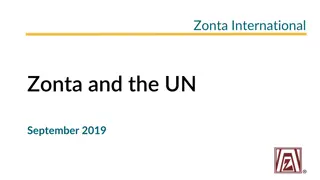Empowering Women through Menstrual Health Management Intervention
Menstrual Health Study in CHIEDZA focuses on improving menstrual hygiene management for young women through education, product provision, and champion profiles. The intervention aims to enhance uptake and retention of MHM services by addressing facilitators and barriers, developing tracking tools, and involving participants in data collection and analyses. The initiative seeks to overcome cultural barriers and biases for better menstrual health outcomes.
Download Presentation

Please find below an Image/Link to download the presentation.
The content on the website is provided AS IS for your information and personal use only. It may not be sold, licensed, or shared on other websites without obtaining consent from the author.If you encounter any issues during the download, it is possible that the publisher has removed the file from their server.
You are allowed to download the files provided on this website for personal or commercial use, subject to the condition that they are used lawfully. All files are the property of their respective owners.
The content on the website is provided AS IS for your information and personal use only. It may not be sold, licensed, or shared on other websites without obtaining consent from the author.
E N D
Presentation Transcript
Menstrual Health Study Rozinah Chuchu Yvonne Kaseke Maria Tapfuma
BACKGROUND Menstruation is a fundamental experience for girls and women, and appropriate menstrual hygiene management (MHM) is directly linked with basic human rights and key to sexual and reproductive health (SRH). Yet, MHM is often left out of SRH interventions and continues to be a challenge for many girls and women, especially in countries like Zimbabwe. With this in mind, CHIEDZA intervention services will include MHM education and the provision of MHM products (e.g. the menstrual cup, reusable pads, period pants, and pain medication). The YRA project will be used to inform and develop a period tracking diary and the profile of an MHM champion that will support and influence the uptake and retention of MHM services within CHIEDZA.
AIM To support female engagement and participation in the menstrual health management (MHM) intervention within CHIEDZA AIM and OBJECTIVES OBJECTIVES 1. To investigate the facilitators and barriers to MHM intervention uptake and retention among young women in CHIEDZA 2. Develop a menstrual health champion profile for CHIEDZA 3. Develop a simple period tracking diary to support menstrual health management among young women in CHIEDZA
Develop data collection plan and data collection tools Recruit of participants for focus group discussions, in- depth interviews, and participatory workshops Methods Data collection Data analyses Produce and share period tracking diary and menstrual health champion profile
- Improve MHM intervention uptake and retention within CHIEDZA Benefits - Facilitate improved menstrual health management through the use of the period tracking diary BENEFITS RISKS and LIMITATIONS - Culture and tradition - Bias (researcher acceptability of MHM intervention) Risks & Limitations
